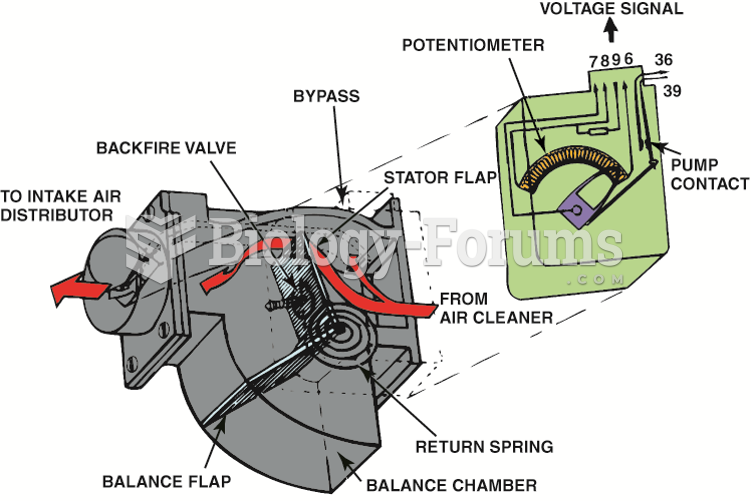|
|
|
Acute bronchitis is an inflammation of the breathing tubes (bronchi), which causes increased mucus production and other changes. It is usually caused by bacteria or viruses, can be serious in people who have pulmonary or cardiac diseases, and can lead to pneumonia.
Patients should never assume they are being given the appropriate drugs. They should make sure they know which drugs are being prescribed, and always double-check that the drugs received match the prescription.
The ratio of hydrogen atoms to oxygen in water (H2O) is 2:1.
Approximately 70% of expectant mothers report experiencing some symptoms of morning sickness during the first trimester of pregnancy.
Cancer has been around as long as humankind, but only in the second half of the twentieth century did the number of cancer cases explode.
 Joseph Moore and His Family (1839), by Erastus Salisbury Field, reflects the emerging middle-class f
Joseph Moore and His Family (1839), by Erastus Salisbury Field, reflects the emerging middle-class f
 Adding propane to the air inlet of an engine operating in closed loop with a working oxygen sensor ...
Adding propane to the air inlet of an engine operating in closed loop with a working oxygen sensor ...





